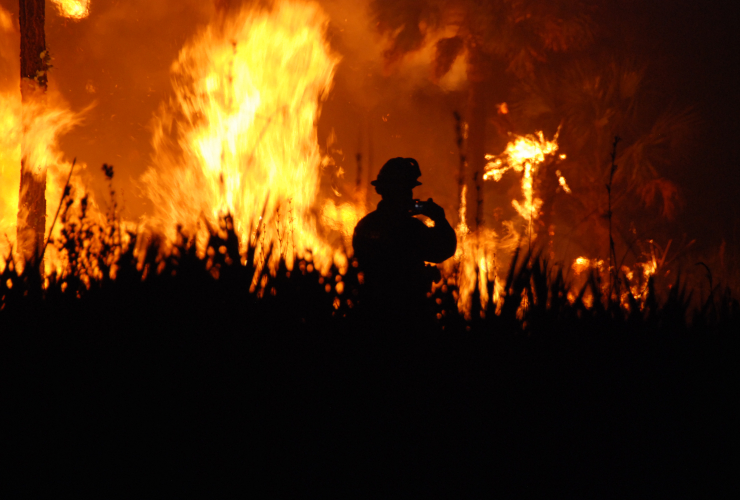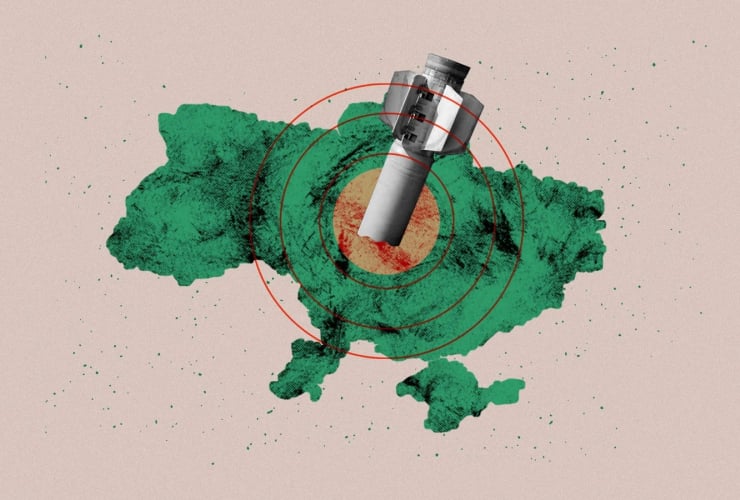Support journalism that lights the way through the climate crisis
Today, an e-petition to the House of Commons will close for signature. The e-petition is asking Parliament to support the recognition of “ecocide” as a crime at the International Criminal Court (ICC). It was launched on March 8 and now has around 1,000 signatures, the number fast-increasing.
Environmental destruction in Canada
Right now, countries like Canada have a lot of environmental legislation. We have the Canadian Environmental Protection Act, the Impact Assessment Act, and more. But these acts are clearly not working. Yes, environmental legislation does important work to mitigate harms against nature, but it is failing to mitigate the numerous pressing environmental crises with which we are faced.
Today, thousands of species in Canada are at risk, many being driven to extinction by habitat loss. The Canadian mining industry reports more tailings spills than almost every other country in the world. There remains a gap between Canada’s climate policies and its international greenhouse gas emissions reduction commitments and obligations.
Environmental NGOs report that the federal government provides billions to the fossil fuel industry every year. Environmental Defence finds the government provided at least $18.6 billion in 2023, including $8 billion in loan guarantees for the Trans Mountain expansion pipeline and $7.3 billion in public financing through Export Development Canada. All the while, wildfires, droughts and flooding are worsening across the country.
The list goes on, but I believe my point is clear. If the underlying goal of Canada’s environmental legislation is to prevent the most severe forms of environmental harm, then it is quite simply not working. Egregious harms against the planet continue to occur without recourse.
Corporations are fined, governments sued, but the individuals making decisions to fund fossil fuels, overlook regulatory failures, launch new industrial projects in fragile ecosystems, and increase Canadian firms’ environmental destruction abroad are not held accountable. This is where the criminalization of ecocide could be a turnkey solution.
The stop ecocide movement
Stop Ecocide Canada is the national branch of a growing global movement to make severe harms against the environment — ecocide — an international crime. The idea is to add ecocide to the ICC’s Rome Statute alongside its current four crimes: genocide, war crimes, crimes against humanity, and crimes of aggression. In doing so, the ICC would recognize ecocide as one of the most important and egregious crimes occurring around the world today.
The ICC tries individuals most responsible for its crimes, like key political or military leaders. However, it is a court of last resort. In other words, the ICC only steps in when countries prove themselves unwilling or unable to try those responsible for egregious crimes against peace. So, when a new crime is added to the Rome Statute, the countries that sign on have an obligation to implement that crime in their domestic legislation. It would create a baseline legal framework to enable and pressure states worldwide to create and enforce their own legislation, to hold accountable the individuals most responsible for mass-pollution events, biodiversity loss, and other environmental catastrophes.
Making ecocide a crime
There are 124 states that are party to the ICC. Each year, representatives from these countries meet at the Assembly of States Parties, the court’s governing body. Any state can propose an amendment to make ecocide a fifth crime. After a process of admissibility and debates, two-thirds of parties must vote in favour of adopting the amendment. At this point, states will be able to sign on and accept the court’s jurisdiction to prosecute the new crime.
Over the past years, more and more states around the world have voiced support to bring this forward. In December 2019, Vanuatu and the Maldives were the first to call for serious consideration of ecocide as a crime at the ICC. Since then, climate-vulnerable small-island developing states have been leading the way, with Vanuatu at the forefront of calls to criminalize mass environmental destruction. More recently, countries like Chile, Belgium and Brazil have sought to criminalize ecocide in their domestic legislation. Dozens more have political parties or government officials voicing support. In 2024, the European Union adopted a new environmental crime directive that includes crimes comparable to ecocide.
Canada’s role
The stop ecocide movement in Canada began in 2020. We have met with MPs from all major parties, securing public cross-party support from Jenica Atwin, Elizabeth May, Alexandre Boulerice, Patrick Weiler, and many others. We have also launched strong grassroots campaigns, reaching out to Canadians across the country via webinars, podcasts, petitions, canvassing, art builds, rallies and panels.
At present, we are running a formal e-petition to the Canadian government that will close today. Once it closes, the e-petition will be read before the House of Commons. This represents a chance for Canada to step up and fill a glaring gap in its existing environmental legislation. The federal government should recognize ecocide as a domestic crime in Canada and support the initiative to make ecocide a fifth crime at the ICC.
Climate change, biodiversity loss, plastic pollution, tailings spills, resource depletion — these crises are pressing. They threaten not only the environment, but human lives around the globe.
Through this e-petition, Canadians are speaking up and demanding real action. We are demanding the prevention of widespread and long-term environmental harm. We are demanding real accountability when environmental destruction causes severe consequences for people and the planet.
Amalie Wilkinson (they/xe) is the founder of Stop Ecocide Toronto and youth ambassador for Stop Ecocide Canada. They have a degree in international relations and peace, conflict and justice studies from the University of Toronto.






Comments